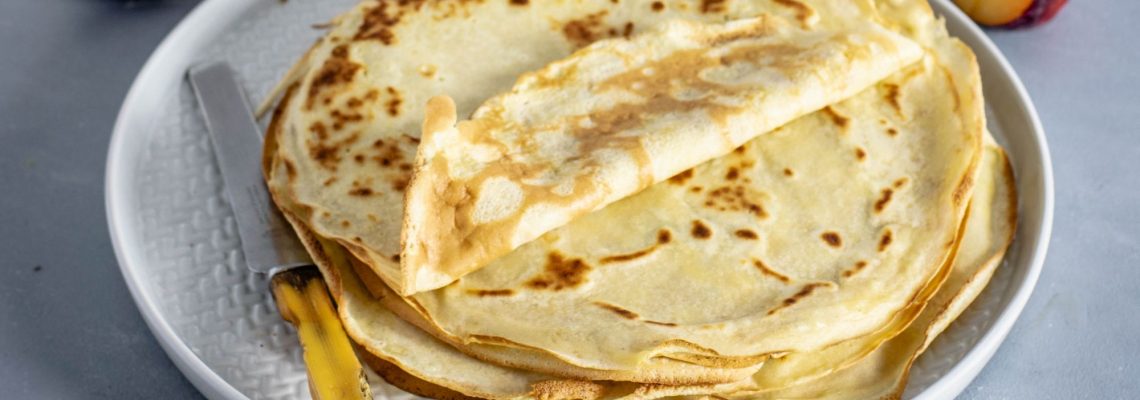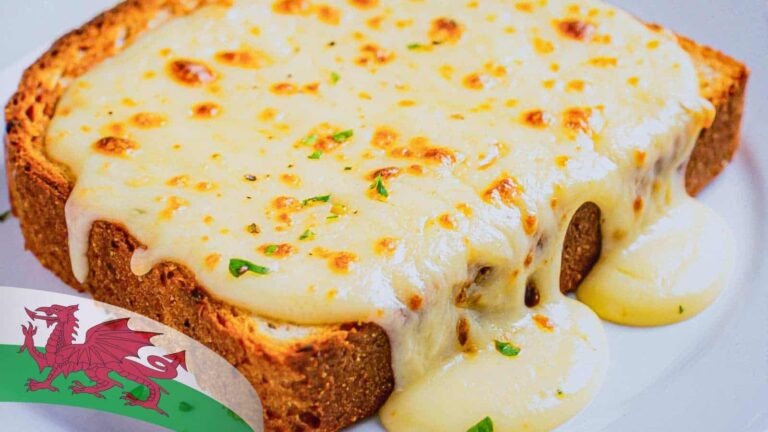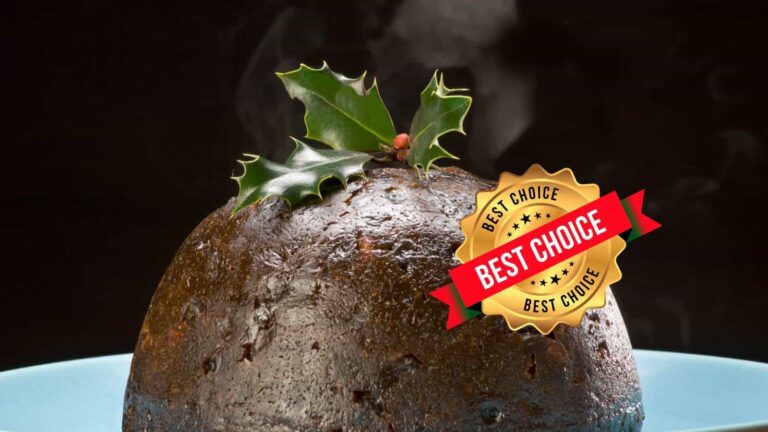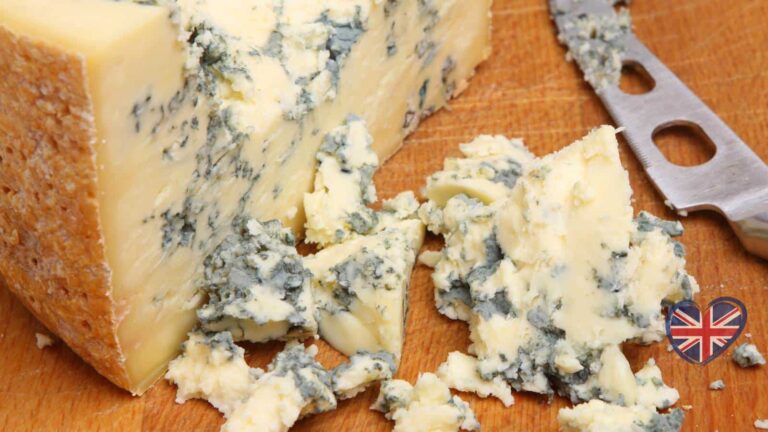Pancake Day – Shrove Tuesday
Everybody loves pancakes – and Pancake Day, also known as Shrove Tuesday, is the perfect excuse to indulge. This much-loved British tradition combines centuries of history, delicious food, and quirky customs that still bring communities together today. But where did it come from, why do we flip pancakes, and when is Pancake Day in 2026?
Celebrating Pancake Day Shrove Tuesday
Traditionally, pancakes are eaten on Shrove Tuesday – the day before Ash Wednesday – to use up fresh eggs, milk, sugar, and butter before the fasting season of Lent.
For centuries, Shrove Tuesday has been a day of feasting and fun before the seriousness of Lent.
Lent is observed by Christians in the 40 days before Easter, giving up rich foods and fasting. Making pancakes was the perfect way to clear out the cupboards.
Lent starts on Ash Wednesday before Easter when people commit to 40 days of fasting.
In other countries it’s celebrated as Mardi Gras (French for “Fat Tuesday”) or Carnival, marked with colourful parades and feasts.
Pancake Tuesday 2026 is on February 27th 2026.
In 2026, it will fall on Tuesday, February 17th, marking the last day of feasting before the 40-day Lenten period begins on Ash Wednesday. This year, because Easter Sunday is on April 5th, so Shrove Tuesday lands on February 17th.
Why is it on Different dates
Pancake Day (Shrove Tuesday) is celebrated every year between February 3rd and March 9th. It always falls on different dates, but always on a Tuesday.
This is because it is tied to Easter, which follows the lunar calendar. Easter Sunday is the first Sunday after the first full moon following the spring equinox (21 March). Shrove Tuesday falls exactly 47 days before Easter.
Customs and Traditions
Traditionally during Lent, Christians would give up foods such as butter, eggs, sugar and fat. Shrove Tuesday is celebrated in most English speaking Christian countries. The name “Shrove” comes from the Old English word “shrive”, meaning to confess sins.
A traditional English pancake is thin and eaten immediately. Golden syrup or lemon juice and caster sugar are the common toppings for pancakes.
The pancake has been featured in cookery books as far back as 1439. The tradition of tossing or flipping them is almost as old: “And every man and maide doe take their turne, And tosse their Pancakes up for feare they burne.” (Pasquil’s Palin, 1619).
The Great British Pancake Race
Perhaps the most charming part of Shrove Tuesday in Britain is the pancake race. These races, held in towns and villages up and down the country, see competitors sprint through the streets with frying pans in hand, tossing pancakes as they go.
The most famous pancake race is in Olney, Buckinghamshire, where the tradition is said to date back to 1445.
According to legend, a housewife heard the church bells calling her to confession while she was cooking. She ran to the service still clutching her frying pan, pancake inside, and the race was born. To this day, the Olney Pancake Race is run annually, with competitors wearing aprons and scarves as they dash to the church, flipping as they go.
Other towns have since adopted their own races, often raising money for charity. Join in the fun and take part in a Pancake race near you.
Easy Pancake Recipe
No Pancake Day would be complete without cooking your own. Here’s a simple recipe for making perfect British pancakes:
No Pancake Day would be complete without cooking your own. Here’s a simple traditional recipe:
Ingredients
- 120g (4oz) plain flour
- Pinch of salt
- 2 eggs
- 210ml (7fl oz) milk
- 90ml (3fl oz) water
Method
- Whisk all ingredients together until smooth. Leave the batter to rest for 30–40 minutes.
- Heat a frying pan with a little oil or butter.
- Pour in a ladle of batter, swirling to coat the pan.
- Cook for about a minute, then flip and cook the other side.
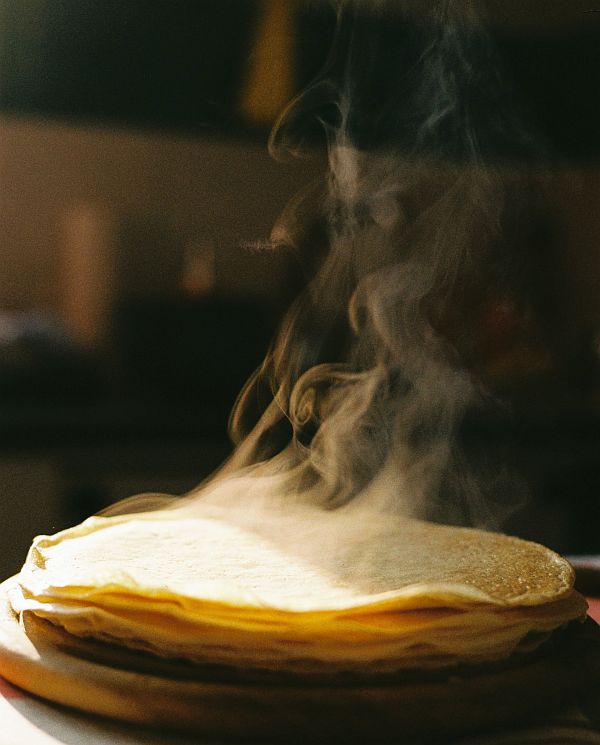
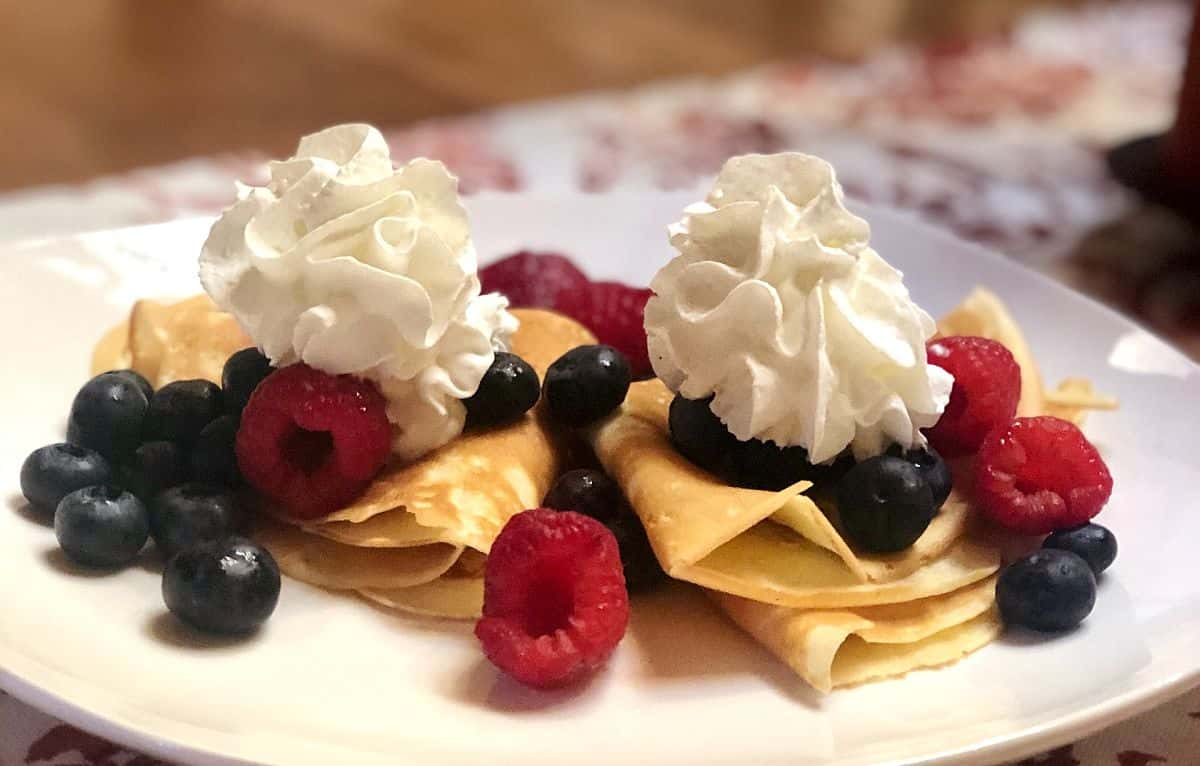
Toppings and Flavours
Go with traditional sugar and lemon juice, or choose your own. What’s your favourite flavour? While the classic topping of lemon juice and sugar remains Britain’s favourite, tastes are evolving.
Traditional: Lemon & sugar, golden syrup, jam
Modern favourites: Nutella, banana, blueberries, chocolate sauce, honey, or even savoury fillings like cheese and spinach
Fun fact: UK supermarkets report pancake mix sales increasing by 200–300% in the week before Shrove Tuesday.
Buy a British-Made Frying Pan
Want to cook your pancakes in true British style? If you are looking for British made cookware, then you are in luck. There is a range of great cookware made in Britain.
For a lovely range of iron frying pans have a look at Netherton Foundry, a family owned business located in South Shropshire. Or, a selection of premium frying pans from Samuel Groves, a leading British cook & bakeware manufacturer based in Birmingham.
Pancake Day Trivia
The first written pancake recipe is from the Tudor period. The recipe which includes ale and cinnamon, appeared in 1588, in an English cookbook called Good Huswifes Handmaide for the Kitchen.
No one is quite certain, however it is said, that the tradition of flipping pancakes, started in the 15th century when a woman, while rushing to get to church to confess her sins, she was seen running and making pancakes at the same time.
The oldest recorded pancake race was held in Olney, Buckinghamshire in England in 1445.
In 1995 record-breaker Dean Gould at Felixstowe Suffolk tossed the largest number of pancakes in the shortest amount of time is 349 tosses in two minutes.
Searching for British made products?
Find regionally made products by independent businesses offering a unique range of goods. Every part of the country has it’s own regional speciality and traditional crafts.

